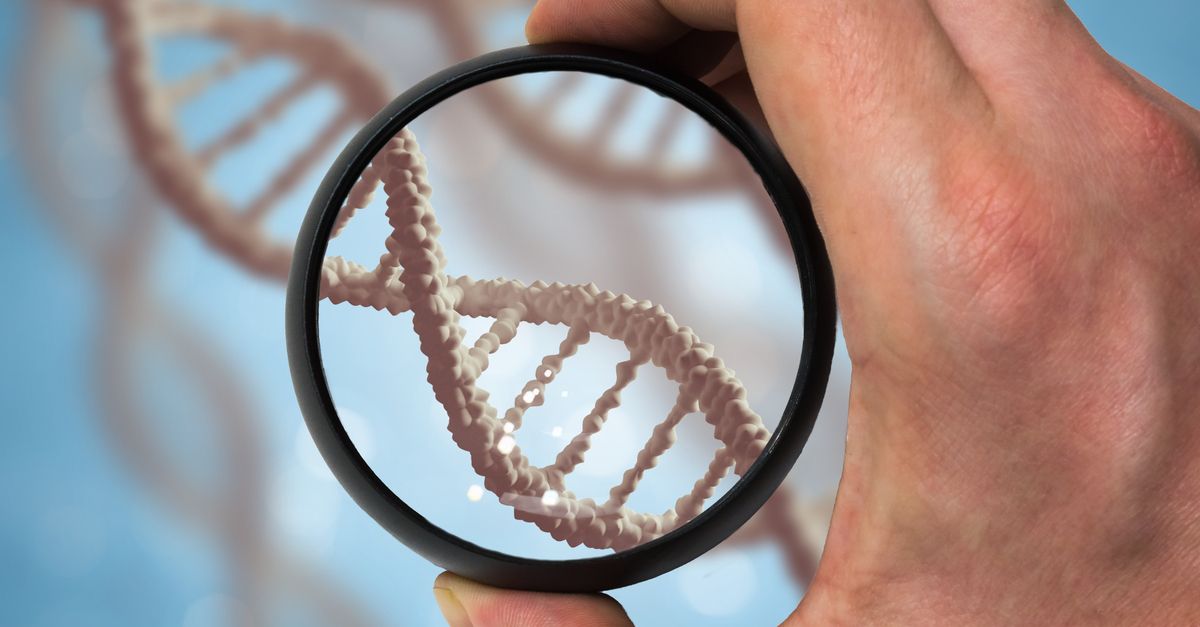On Aug. 29, 2019, the journal Science published a study identifying five genetic markers significantly associated with people who have stated in a survey they had at least one same-sex partner. Survey answers and genetic testing came from two large datasets: a research effort known as the UK Biobank and the genetic testing company 23andMe.
Known as a genome-wide association study, the paper represents a form of observational research in which scientists apply math to determine if a certain trait or condition is associated with specific genetic differences. In this study, researchers had access to a survey asking participants — in the case of the UK Biobank — “have you ever had sexual intercourse with someone of the same sex?” as well as those individuals’ complete genome.
What Did The Researchers Find?
The researchers are an international group co-led by Benjamine Neale of the Broad Institute of MIT and Harvard and Brendan Zietsch of the University of Queensland in Australia. After crunching the numbers, they identified five regions in the human genome that appeared to be associated with people who answered “yes” to the same-sex partner question. Though the genetic variations all concern autosomal chromosomes (as opposed to the sex-determinant X Y chromosomes), only two of the markers were shared by both men and women. Two others appeared specific to men, and one appeared specific to women.
The relationship between these genetic factors and sexual orientation is likely not direct. As an example, Science correspondent Jocelyn Kaiser highlighted two specific factors identified in the study and how they could possibly contribute to a broader picture of sexuality in her coverage of the study: "One of the genetic variants was near genes associated with male baldness, suggesting a tie to sex hormones such as testosterone, and another was in an area rich in smell genes, which have been linked to sexual attraction."
In other words, these are not “gay genes” so much as genetic factors that could contribute more broadly to a person’s sexuality. The researchers argue that their results “underscore the complexity of sexuality” and call into question “the validity of bipolar continuum measures such as the Kinsey scale.” Andrea Ganna, the study’s first author, told The New York Times that it would be “basically impossible to predict one’s sexual activity or orientation just from genetics.”
How Much of This Is New?
This study is the largest of its kind and in the view of some scientists the first clear evidence of genetic influence on human sexual orientation. However, genetic underpinnings of human sexuality have been suspected and investigated for some time. A study from 1998, using information from twin and sibling studies, suggested that sexuality had a heritable component. “Family, twin, and adoptee studies indicate that homosexuality and thus heterosexuality run in families,” the authors of that study wrote. More recently, a population study of twins in Sweden published in 2008 suggested that genetic factors had a “moderate” effect on same-sex behavior.
Does the Study Have Caveats?
The study had notable limitations. As reported in Scientific American, “almost all of the participants were from the U.S. or Europe, and the individuals also tended to be older — 51 years old on average in the 23andMe sample and at least 40 in the UK Biobank sample.”
Numerous researchers questioned the utility of the way in which the survey question was phrased, as reported in Science:
Researchers caution that the findings are limited by the fact that a person who had a single same-sex experience was counted as nonheterosexual. Having just one such encounter, for example, may reflect an openness to new experiences rather than sexual orientation, says Dean Hamer, a retired geneticist from the National Institutes of Health in Bethesda, Maryland. ... "They didn’t have a particularly good measure of sexual orientation,” agrees evolutionary biologist William Rice of the University of California, Santa Barbara.
Rice suggested that asking all participants which sex they were more attracted to, as was done in the smaller 23andMe dataset, “would also capture gay or bisexual people who have not acted on their attractions,” where the UK Biobank survey would have missed those individuals.
Both the researchers who published the study and scientists unassociated with the study agree that it does not demonstrate that genetics solely determines sexuality. Everyone is similarly in agreement that the results do not indicate that anyone’s sexuality could be predicted by genetics.
